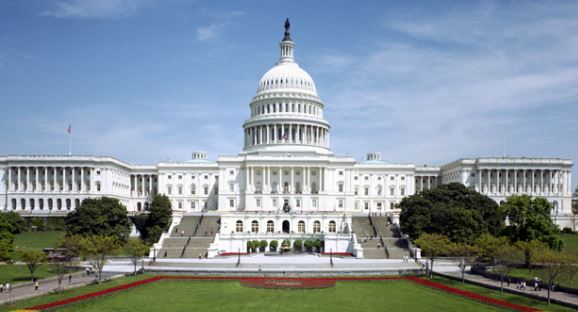Inside D.C.
Policy getting murkier, confused

The Washington, DC, politics of farming and ranching are getting goofier by the minute. President Trump continues to send mixed signals on the fate of the U.S.-China tariff talks while metaphorically patting producers on the head. At the same time, the number of Democrat White House wannabes out of touch with food production and consumer demand continues to grow.
The president this week told reporters he’s “in no rush” to get a China deal inked before the November, 2020, election, yet he continues to hint during farm state appearances he’s willing to try and get federal money for a third tranche of Market Facilitation Payments (MFP) to ease the economic pain caused by his tariff war. Good luck with that, Mr. President.
Perhaps this is just deal-maker rhetoric intended to get China’s attention, but it signals Trump’s concern over economic pain in the heartland may not run so deep after all. Apparently, he believes all can be saved with a government check.
Preparation for the next round of face-to-face trade talks in Washington, DC, in early October began this week, and Treasury Secretary Steve Mnuchin threw ag another curve ball, saying last week China’s targeting of U.S. ag exports for retaliatory tariffs is a major subject for discussion. Mnuchin told the Senate Banking Committee, “We want to make sure that China treats our farmers fairly and doesn’t retaliate against the farmers in an unfair way. I tell you that’s top of the agenda for the conversations we’re having this month.” He said the U.S. has pushed for an “interim agreement” that would require the Chinese to buy more ag products. So far, there have been a couple of moderately large soybean buys, and a whole lot of U.S. pork, but not much else.
Meanwhile, the still-crowded field of Democrat presidential candidate aspirants keeps spewing screwy policy proposals as well, perhaps taking a cue from the Hollywood insulated and uneducated. We expect Ellen DeGeneres, a comic and talk show host who spends thousands of her own money saving gorillas, to tell her 77.2-million viewer audience last week, that in the context of climate change, they should eat less meat. “The point is, it’s better for you and it’s better for the environment and for the animals. Eat less meat. #EatLessMeat,” she said. “Hey, be neat, no meat.”
Even though all of DeGeneres’ assertions have been debunked by science, i.e. aren’t true, nevertheless she’s considered a bellwether of what middle America thinks, a latter-day Oprah, if you will. Perhaps she inspired California tech exec Andrew Yang, who keeps wanting to give everyone money, to propose recently that he’ll “curb expansion and reduce the environmental impact of the cattle industry” so to “reduce demand.” Or maybe Yang and DeGeneres are getting their climate change info off social media.
Yang joins Sen. Cory Booker (D, NJ), PETA’s sexiest vegan or whatever, and Sen. Kamala Harris (D, CA) in dissing livestock farmers and ranchers by dissing what they do for a living. Yang would go further.
“So, if you were to make it (meat) more expensive, then you would end up changing consumption patterns over time, so I think it would be healthy on an individual and societal level to move in that direction,” he said. Yang explained “cattle end up polluting a lot, which they do just naturally – we don’t hate them for it, they’re just animals.” He says his plan – “and some people are going to hate this” – would “probably make those (meat) products more expensive, and that is appropriate because there’s a cost to producing food in that way.” He then acknowledges “you can’t force people’s eating choices,” but allows “all you do now is try to shape our system so that over time we evolve in a productive way.”
The good news is Yang, Booker and Harris likely won’t make the cut in the narrowing Democrat field of presidential hopefuls. The bad news is they’ve got a microphone and they’re spouting a lot of nonsense.
The goal should be for the federal government to get out of the way of food production. All White House aspirants must learn what agriculture is really all about. The reality is we’re talking about a family-owned endeavor – the Cargills, Tysons, etc., are not the driving force – and these families feed over 300 million people – and a big chunk of the world when trade policy allows – with a an abundance of environmental stewardship and commitment.

Add Comment